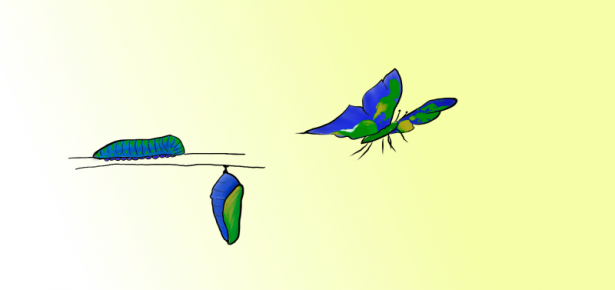
When UN Secretary-General Antonio Guterres at the recent Climate Action Summit in New York urged countries to “show the way towards a full transformation of economies in line with sustainable development goals”, this reflected the growing international science and policy attention to the need for fundamental, systemic, non-linear societal transformations to achieve sustainability, in response to climate change and unsustainable trajectories.
But how can we understand what drives such transformative changes, to what extent can transformations be governed, and how do actors’ understandings of the goals and pathways of transformations differ within and across societies?
These are the types of questions that motivated us to write our book Sustainability Transformations: Agents and Drivers across Societies. In the book, we analyse the multiple and multifaceted ways in which actors make sense of how to change the world sustainably. We explore historical and current analogies, metaphors, stories and narratives from around the world, based on studies of academic literature, countries’ contributions to the Paris climate agreement and the UN 2030 Agenda, international news media, and laypeople’s focus groups on five continents.
Depending on the system boundaries, the scale and the pace of the transformation, different types of challenges arise. We argue that there is a need for enhanced clarity on the many uses of the transformation concepts in climate and sustainability science and policy. To this end, we constructed a typology of transformations, encompassing quantum leap, convergent, emergent and gradual approaches. This typology also structured our analysis of the steadily growing research literature on transformation governance.
In the book, we discuss five major ways of conceptualizing transformation, recurring in our data sets: as a journey, a building process, a war, co-creation, and recuperation. Each of these metaphorical ways of describing transformation processes highlight different dimensions of societal change, all with their particular strengths and limitations, and need to be critically scrutinized by anyone involved in communication on sustainability transformations.
We learn from complex systems theory that endeavours to command large-scale socio–ecological systems are unlikely to progress as planned, since we cannot foresee all irregular and nonlinear interactions. Future societal transformations are probable to involve mosaic combinations of emergent and deliberate transformation processes, shaped by a combination of political governance, shifting modes of transnational economic exchange, technological and social innovations, public perspective shifts, citizen priorities, global and local environmental changes.
We also point to the importance of identifying platforms for dialogue that can support the types of ‘clumsy institutions’ that will be needed for governing sustainability transformations. We reflect on the role of utopian visions in spurring discussions about new pathways that could escape from path dependency and go beyond current lock-ins – while also taking into account how culture is nested in material conditions and practices, and vice versa.
During our work, we found a multitude of inspiring stories of transformation, indicating how the movement for sustainability transformations is growing. In our book we hope to reflect the plethora of insights, stories, experiences, and visions which provide a basis for continued discussions about future conditions, challenges and pathways for sustainability transformations.
Latest Comments
Have your say!